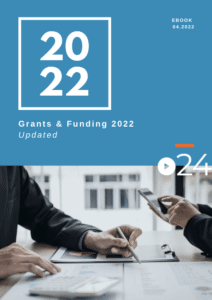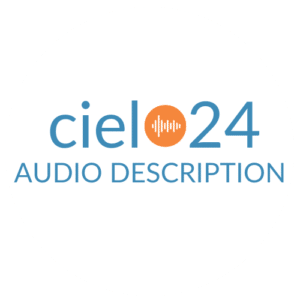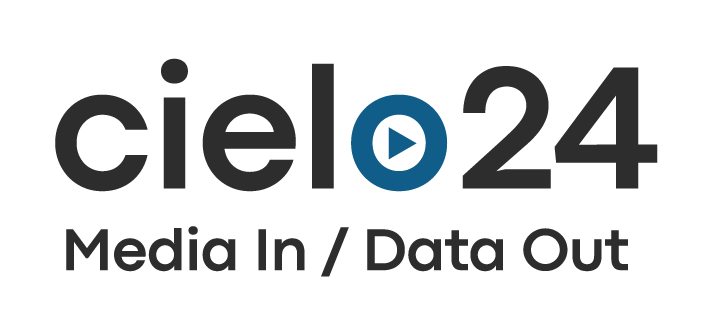Using audio description in the classroom comes with many advantages. Audio description, by definition, is…

The Grant Proposal Lifecycle
Grant proposals are formal documents in which an organization seeks financial support from a foundation to achieve its goals. These goals could be paying for programs like acquiring computer equipment or hiring teachers, or transforming the physical space of a school. A grant proposal will typically include information about the organization’s mission and background.

To write one successfully, start by understanding how grants work in general and thoroughly researching potential donors before pitching your idea. Then, come up with an outline of your proposal and write it out in full before drafting the actual text. This can be broken up into three phases:
- Pre-Award Phase
- Award Phase
- Post-Award Phase
Grant Proposal Pre-Award Phase
The first stage of the funding proposal is to find and research available grants. Determining whether you or your organization is eligible is an essential step. You can waste a lot of time and money completing an application only to find out that you are not allowed to accept the grant. Each grant can have different eligibility requirements, so it is imperative to read through the application instructions and determine whether you are eligible or not.
You also want to do your due diligence in identifying the funding opportunities that will be most beneficial to your project. There are many grants out there, all with differing requirements. It’s important to evaluate which opportunities are worth your time and energy. As you’re researching grant opportunities, it is also a good idea to learn about the reporting requirements you will need to follow if awarded.
Grant Proposal Award Phase
Just as it sounds, this phase is when the review board has made a final decision. If applying for a federal grant, the final award decisions are determined by the federal agency staff with fiduciary responsibility and with the legal authority to enter binding legal agreements. If you are applying for grants from a private organization, be sure to become familiar with their specific award policies and procedures.
Grant Proposal Post-Award Phase
The post-award phase is probably the most challenging. In this phase, you have to implement everything you proposed in your grant.
You will also be responsible for reporting progress and completing close-out requirements. Usually, you are assigned a grant manager officer who will be your main point of contact and will work with you on accountability. Again, each grant will have varying arrangements and will differ in its procedures. It is important to become very familiar with all the phases and steps for each grant you are applying for. Now, that you are familiarized with the grant lifecycle, you are ready to search for the right grant for you!
Step-By-Step Grant Proposal Writing Guide
1. Create The Grant Application File
After your group has confirmed that you’re eligible for a special grant opportunity and have read the Federal requirements for submitting applications, create an application. County, state, or federal departments have specific applications they may require you to make, so make sure to review the submission guidelines for each grant program you’re interested in.
2. Write A Description
The description is where your group will lay out in great detail what needs to get solved and how it will be done once funding has been received. Remember that the grants are expected to be used to supplement regular facility and staff maintenance, so it’s important to state what your regular program budget doesn’t cover.
3. Include The Right Statistics
Be sure to include statistics that illustrate the problem you’re addressing. Do this by including detailed information from survey results, past performance data, annual reports, or other documents your board considers credible. This helps show how effective your organization has been in handling the problem and how it will change once additional funding is available.
4. Include A Financial Plan
The financial plan details how the money will be used. Include a projected annual budget for the grant, as well as a listing of how each expenditure will be allocated. Ensure to show how much funding you anticipate clearly will be received in your first year of grant support and what that money will cover.
5. Be Clear About What You Will Do With The Money
Be clear about the issue you’re addressing and what needs to get solved so that there isn’t confusion about what’s being asked for in this application process. Misalignment between grant uses and your organization intended uses will lead to automatic disqualification. While explaining your needs, make sure:
- Your budget is in line with the budget requirements outlined by the organization.
- The request does not exceed the maximum amount of the grant.
- The request is in line with your program plan outlined in the grant.
6. Write A Strong, Brief Statement Of Your Mission
Your organization’s mission is essential, so be sure to include it as a part of the grant application. What problems does your organization address? How does your group do this? Give examples. Also, state how vital education is to the future of your community or geographic region. Explain how education benefits the larger society and any cultural or ethnic groups you address in your work.
Remember that many programs attempt to help local neighborhoods with educational issues. Schools that help students become more literate in their language are sometimes thought of favorably by funding sources that might not have even been looking for these kinds of work when they set up their grants.
7. Create A Budget
Your budget should be detailed, showing how the organization plans to spend the grant. Include all revenues and expenses as well as sources of matching funds if applicable. Be sure to leave space for notes in your application, allowing you to add more information in an update after you’ve submitted it.
8. Final Review
Make sure your grant includes ALL required information. Once your grant is submitted, the awarding agencies perform an initial screening where they check each proposal to ensure it includes all the required information. If your grant does not include all of the required elements, it will be rejected! The review board will then perform a thorough assessment which includes an in-depth look at the proposed plan and the budget analysis.
cielo24 provides digital accessibility solutions – Captions, Transcripts, Audio Description
 Using our own robust AI machine and human quality control, we offer a full suite of accessibility solutions. Sign up for the Self Serve web app where human-verified transcriptions and captions start at less than $1/minute. Contact us online to get started!
Using our own robust AI machine and human quality control, we offer a full suite of accessibility solutions. Sign up for the Self Serve web app where human-verified transcriptions and captions start at less than $1/minute. Contact us online to get started!
Looking for Audio Description? Get started with WCAG 2.1 AA compliant Audio Description product. cielo24’s new Audio Description solution brings an improved video experience to people with low vision, vision impairment, and blindness. Give it a try now >>



